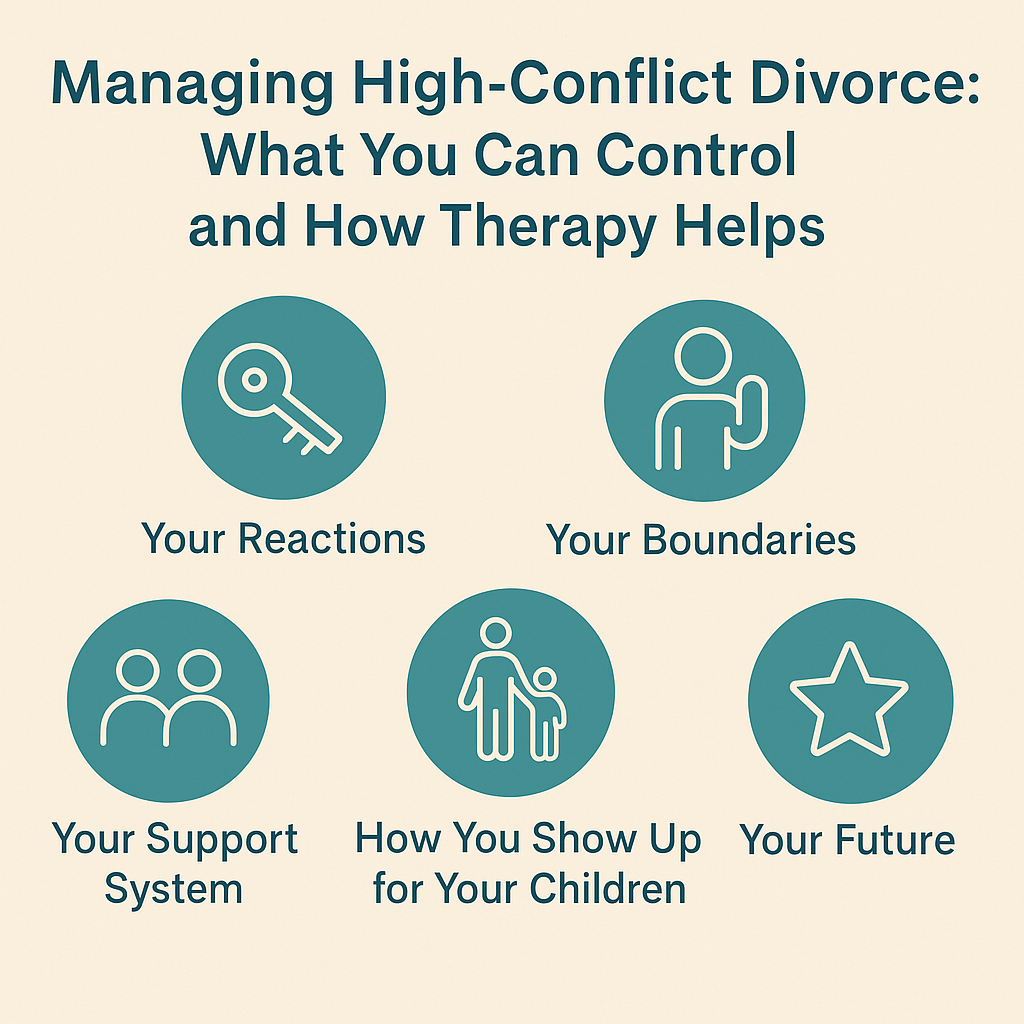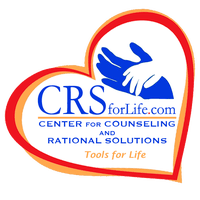Managing High-Conflict Divorce: What You Can Control and How Therapy Helps

Divorce is never easy, but some divorces come with an added layer of complexity, hostility, and emotional pain. High-conflict divorces — those marked by intense anger, ongoing disputes, and difficulty communicating — can feel overwhelming and all-consuming. If you’re in the middle of one, you might feel powerless, exhausted, and unsure of what to do next.
At CRS for Life, we help individuals in high-conflict situations find clarity, regain control, and move forward with purpose. While you can’t control another person’s behavior, you can control how you respond, how you care for yourself, and the steps you take to protect your emotional and mental well-being.
You may not be able to control what your former partner says or does — but you can control your response. Working with a therapist can help you recognize emotional triggers and learn tools for staying calm, grounded, and focused on what truly matters.
Establishing and maintaining healthy boundaries is essential. That might mean limiting communication to written messages, refusing to engage in arguments, or making decisions through attorneys or Collaborative professionals.
You don’t have to go through this alone. Building a circle of support — including a therapist, friends, family, or a support group — can help you feel less isolated and more empowered.
In high-conflict divorces, children are often caught in the middle. While you can’t control the other parent’s behavior, you can create a safe, stable emotional space for your children. Therapy can help you stay child-focused and develop tools to support their emotional well-being.
You get to decide how this chapter ends and what the next one looks like. Even when it feels like the conflict will never end, therapy can help you reconnect with your values, set new goals, and begin writing your next story.
Therapy isn’t about “fixing” anyone — it’s about giving you the space, skills, and support to move through a painful process with intention and strength. Here’s how it helps:
- Emotional Regulation: Learn how to manage intense feelings like anger, fear, resentment, or grief so they don’t control your actions.
- Communication Strategies: Develop healthier ways to engage, disengage, or redirect when interacting with a high-conflict co-parent or ex-spouse.
- Stress Reduction: Practice mindfulness, breathing techniques, and other tools to lower stress and promote calm.
- Decision Support: Therapy helps you make grounded, values-based decisions — even when emotions run high.
- Self-Empowerment: Rebuild your confidence, rediscover your identity, and create a vision for life after divorce.
High-conflict divorces can take a toll on your mind, body, and spirit — but healing is always possible. With the right tools and support, you can take control of your life, protect your peace, and begin to thrive again.
At CRS for Life, we provide compassionate, judgment-free therapy to help you navigate the toughest transitions. Whether you’re in the midst of conflict or trying to heal from it, you don’t have to do it alone.
Take the first step today.
Visit www.crsforlife.com to learn more about our therapy and coaching services — and let us help you turn conflict into clarity.

